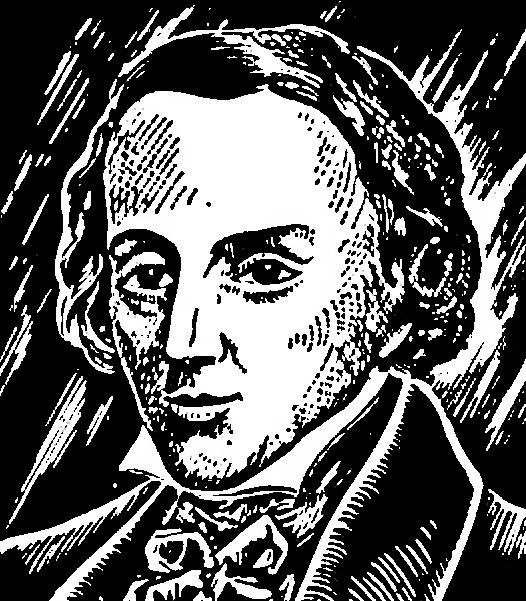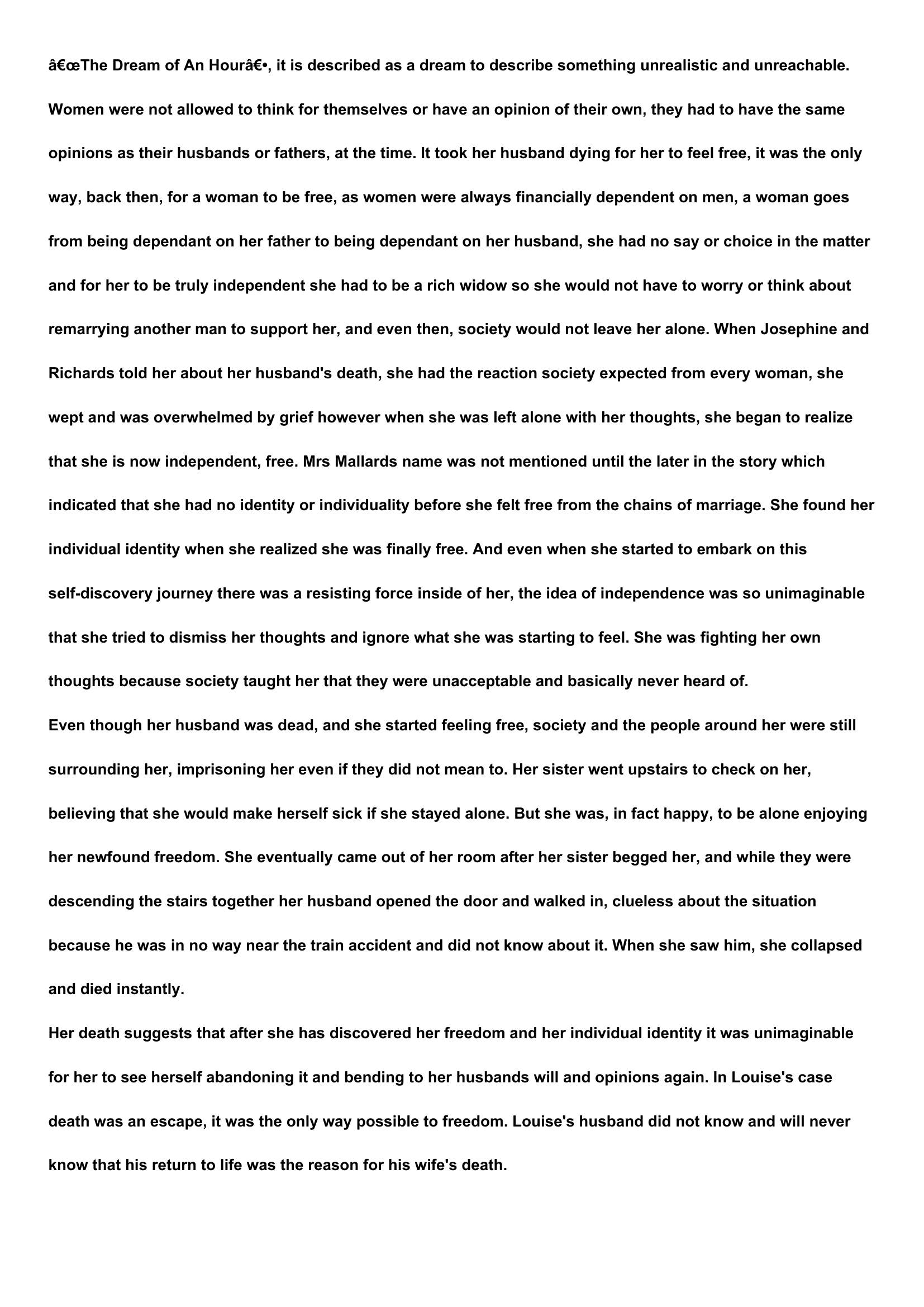The Story of An Hour by Kate Chopin
Publié le 20/10/2020
Extrait du document


«
“The Dream of An Hour”, it is described as a dream to describe something unrealistic and unreachable.
Women were not allowed to think for themselves or have an opinion of their own, they had to have the same
opinions as their husbands or fathers, at the time.
It took her husband dying for her to feel free, it was the only
way, back then, for a woman to be free, as women were always financially dependent on men, a woman goes
from being dependant on her father to being dependant on her husband, she had no say or choice in the matter
and for her to be truly independent she had to be a rich widow so she would not have to worry or think about
remarrying another man to support her, and even then, society would not leave her alone.
When Josephine and
Richards told her about her husband's death, she had the reaction society expected from every woman, she
wept and was overwhelmed by grief however when she was left alone with her thoughts, she began to realize
that she is now independent, free.
Mrs Mallards name was not mentioned until the later in the story which
indicated that she had no identity or individuality before she felt free from the chains of marriage.
She found her
individual identity when she realized she was finally free.
And even when she started to embark on this
self-discovery journey there was a resisting force inside of her, the idea of independence was so unimaginable
that she tried to dismiss her thoughts and ignore what she was starting to feel.
She was fighting her own
thoughts because society taught her that they were unacceptable and basically never heard of.
Even though her husband was dead, and she started feeling free, society and the people around her were still
surrounding her, imprisoning her even if they did not mean to.
Her sister went upstairs to check on her,
believing that she would make herself sick if she stayed alone.
But she was, in fact happy, to be alone enjoying
her newfound freedom.
She eventually came out of her room after her sister begged her, and while they were
descending the stairs together her husband opened the door and walked in, clueless about the situation
because he was in no way near the train accident and did not know about it.
When she saw him, she collapsed
and died instantly.
Her death suggests that after she has discovered her freedom and her individual identity it was unimaginable
for her to see herself abandoning it and bending to her husbands will and opinions again.
In Louise's case
death was an escape, it was the only way possible to freedom.
Louise's husband did not know and will never
know that his return to life was the reason for his wife's death..
»
↓↓↓ APERÇU DU DOCUMENT ↓↓↓
Liens utiles
- Moria (Folly) Greek The heroine of a story of overcoming death.
- Rebel Without a Cause Rebel Without a Cause, motion picture about alienated youth in suburban America based on Stewart Stern's screenplay adaptation of 'The Blind Run,' a 1944 story by Dr.
- West Side StoryWest Side Story, motion-picture musical about star-crossed lovers from different cultures in New York City, based on the 1957 stage play by Arthur Laurents andJerome Robbins, which was inspired by Romeo and Juliet (1595?
- Titanic (motion picture, 1997) Titanic (motion picture, 1997), drama about the sinking of a luxury liner during its first transatlantic voyage, based on the true story of the Titanic disaster that occurred in 1912.
- It's a Wonderful Life It's a Wonderful Life, motion picture about a man who believes he is a failure because he never left the small town where he grew up, based on the story The Greatest Gift by Philip Van Doren Stern.











